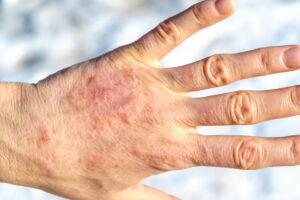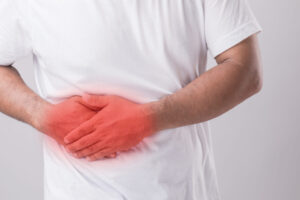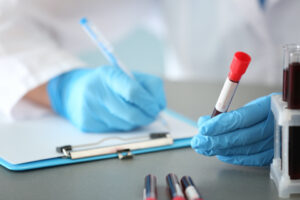Liver Disease Prevention
Hello Everyone! Did you know that what you ingest (and what you don’t) has an incredible impact on your liver? What you eat and drink and your supplements and medication affect the liver.
Your liver is the second largest organ in your body, and it performs over 500 functions that are essential to life. It has a role in nearly every organ system in your body and has a bidirectional connection with your gut.
Homeostasis in the gut is essential for liver health; likewise, the liver must be healthy for the gut!
There are plenty of reasons why you need to look after your liver. For this post, I explain some of a healthy liver’s functions. It will also showcase why an Eat Burn Sleep Liver Detox and Lifestyle are imperative to good health and liver disease prevention and remission.
Why You Should Care About Your Liver
What Conditions are Linked to Liver Disease?
How Does The Liver Digest?
Leaky Gut and Liver Disease
What a Healthy Liver Does
Why You Need a Liver Detox
What Is Fatty Liver Disease?
How Do You Protect the Liver?

Why You Should Care About Your Liver
Liver disease has increased since 1970 by 400%.
In fact, the hospital admission rates for liver disease in the financial year ending 2021 in the UK were the highest since the financial year ending 2011 and significantly higher than the financial year ending 2020.
Many of my clients have been diagnosed with fatty liver disease and have not been able to put their conditions into remission before. A doctor may tell you to eat healthily and watch what you are drinking, but they can’t follow you around and advise you. The big issue is that many foods and drinks that we think are healthy are not. Even many supplements!

Everything impacts the gut, which affects the liver!
What Conditions are Linked to Liver Disease?
Your liver is around the size of a large cone and is tucked under the right-hand ribs in the upper abdomen. It weighs around 3 pounds and takes about 13 percent of your blood supply. The portal vein brings nutrient-rich blood from your gut, and the hepatic artery carries oxygenated blood from your heart.
The thing is, is that there are so many conditions that can create sub-optimum liver function. Gut dysbiosis and chronic inflammation, for example. And all the conditions and symptoms that are attached to those, like gastrointestinal symptoms, SIBO, IBD, eczema, chronic fatigue, nausea, anxiety, multiple sclerosis, fatty liver, and joint disorders.

Fatty liver disease is linked with type 2 diabetes, high blood pressure, kidney disease, heart attacks, and obesity.
There are so many things that we ingest that are linked to these conditions, through gut bacteria and chronic inflammation, that ultimately affect the function of the liver.
The liver is an important buffer between gut contents and systemic circulation.
How Does The Liver Digest?
You see, some of the liver’s vital functions are that it is involved with digestion and blood, which I will describe. If you think about how it processes, purifies, detoxifies, and stores from what we eat and drink, I think it makes you more aware of why you have to look after your gut and liver health. Not just to avoid fatty liver disease and other conditions.
Once something is ingested (food, drink, medication), the stomach and intestine digest it; it gets absorbed into the blood, and 80% of hepatic blood goes to the liver through the portal vein.

This is rich with molecules from gut bacteria, and dietary and environmental antigens. It carries simple sugars, amino acids, glycerol, vitamins and salts, toxins, and byproducts to your liver.
The liver must tolerate this immunological load while providing ‘surveillance’ for viruses, infections, pathogens, malignant cells, etc.
A good-functioning liver is involved in many immunological functions. There are many cells in the liver that are involved with immune activity (Kupffer cells). They destroy disease-causing viruses and other bacteria that enter the liver from the gut.

Leaky Gut and Liver Disease
In a leaky gut, where the intestinal barrier is damaged, the liver becomes exposed to numerous toxins from the gut, as well as from gut bacteria.
If there is an imbalance of gut bacteria, this will dysregulate the immune system, and liver health is further compromised.
Toxins that reach the liver via a disrupted gut barrier accelerate liver disease, increasing the inflammatory response.
It is easy to overload the liver, create an imbalance in gut bacteria, and damage the intestinal lining with today’s diets and sedentary lifestyles.

What a Healthy Liver Does
On receipt of what is delivered to the liver, it then does a filtering process. It will store nutrients like vitamins and minerals to be released when needed. If we eat the right ones, that is! Malnutrition causes liver disorders!
There are all sorts of things that a healthy liver does to convert vitamins into functional forms to be secreted back into circulation or metabolized for excretion.
It detoxifies and pushes toxic substances out of the body.
When food is processed, the liver will also remove excess glucose (sugar) from carbohydrates from the blood and store it as glycogen for when blood sugar decreases. It turns to glucose, giving instant energy into the bloodstream.

When glycogen storage is used up, the liver creates glucose from carbohydrates and some protein.
A healthy liver also produces bile continually, which is critical to digest and absorb any fat that has been eaten, and converts it into energy. Any excess carbohydrates and protein are converted and stored for later use while synthesizing other fats like cholesterol.
Bile comprises bile salts, bilirubin, electrolytes, and cholesterol and is essential for vitamin K absorption. The liver has to produce enough bile to help vitamin K create coagulants to help clot the blood!
It is bile that carries away toxins!
The liver also absorbs and metabolizes bilirubin, which comes from the breakdown of hemoglobin. (High levels in a blood test are a sign of fatty liver disease or hepatitis). The liver or bone marrow stores iron released from hemoglobin. This makes the next generation of blood cells.

The liver also produces albumin, which carries enzymes, hormones, and vitamins through the body. It also keeps fluids in the bloodstream from leaking into the surrounding tissue. Low levels in a blood test indicate liver or kidney issues.
A healthy liver directly synthesizes multiple hormones! It has numerous endocrine functions which are essential for growth, development, metabolism, and reproduction.
It regulates amino acids, synthesizes angiotensinogen, which manages sodium and potassium levels and blood pressure, and removes hormones such as estrogen and aldosterone when necessary. Thyroid hormone conversions also occur in the liver.

Why You Need a Liver Detox
This is just a simplistic look at some of the liver’s functions. It is an incredible organ that must be looked after to prevent it from developing a disease. As I mentioned, it gets overloaded, particularly with the foods and drinks produced now if you consider all the chemicals around us and what we ingest.
You may hear that you do not need to detox because a liver detoxes itself, but food has changed dramatically, and inflammatory lifestyles slow the liver down! Here are a couple of sample recipes from Eat Burn Sleep to show you what type of meals will do you good when eaten every day: Cream of Broccoli & Zucchini Soup & Coconut Yogurt & Almond Cake.
I thoroughly advise our liver detox in the Personalized Advice at least twice a year.
You may be interested in reading: Detox Your Liver Naturally & Looking For a Safe Liver Detox for Weight Loss?

What Is Fatty Liver Disease?
If inflammatory mechanisms in the liver that deal with pathogens and tissue damage, for instance, become disrupted due to less-than-optimum health, disease progression can develop.
Many liver diseases share the same gut dysbiosis, gut permeability, and pro-inflammatory changes in many studies.
Fatty liver disease is a condition caused by irritation to the liver and often runs alongside obesity or heavy alcohol use. Liver tissue accumulates amounts of fat in response to the injury in liver cells. What we ingest contributes to fatty liver disease.

Nonalcoholic Fatty Liver Disease (NAFLD) is a little different because it is not because of alcohol directly. It is most common in people with diabetes, high blood pressure, insulin resistance, obesity, etc. NAFLD also affects people who are not overweight.
Hepatitis is an infection of the liver from viruses and toxins. An autoimmune response can cause it, too!
Cirrhosis is where scar tissue replaces liver cells in a process called fibrosis. Hepatitis can cause this, as well as alcohol and toxins.

Gilbert’s syndrome is a genetic disorder where the body cannot break down bilirubin, so mild jaundice occurs.
Liver cancer is the sixth most common form of cancer globally.
Several organs, like the lungs, heart, and kidneys, are affected if liver disease occurs.
Manipulating gut bacteria to reduce inflammation and improve gut barrier function is an important strategy in the management of diseases.
This is why this anti-inflammatory diet and lifestyle are proving to be a success in putting a fatty liver into remission and avoiding getting one!

How Do You Protect the Liver?
Unhealthy diets and lifestyles change gut bacteria. This results in the production of pathogenic factors that impact the liver.
I advise a lifestyle change to avoid liver overload, with good food, nutrition, and little daily tweaks detailed in The Lifestyle Guide that cumulatively make a massive difference to liver health.
Looking after gut bacteria and avoiding immune dysregulation, dysbiosis, and chronic inflammation will do amazing things for your health.
Remember that chronic inflammation leads to the pathology associated with autoimmune, infectious, and malignant liver disease. Gut health increases or decreases inflammation depending on what you eat, think, and how you live.
If it hasn’t gone too far, your liver can be repaired. It is the only visceral organ that can regenerate. Start a fabulous detoxification to reset your liver and move on to the next level of health.

Members, although I advise following this lifestyle on an 80/20 ratio, there are times when it can be more like 70/30 because, as you know, this lifestyle isn’t about perfection. So, I advise doing the liver detox twice a year. Check Instagram for the results of the last time I did one!
You won’t believe how incredible you feel afterward, such as a newfound enthusiasm for life and your health!
I am sending you all good health wishes.


